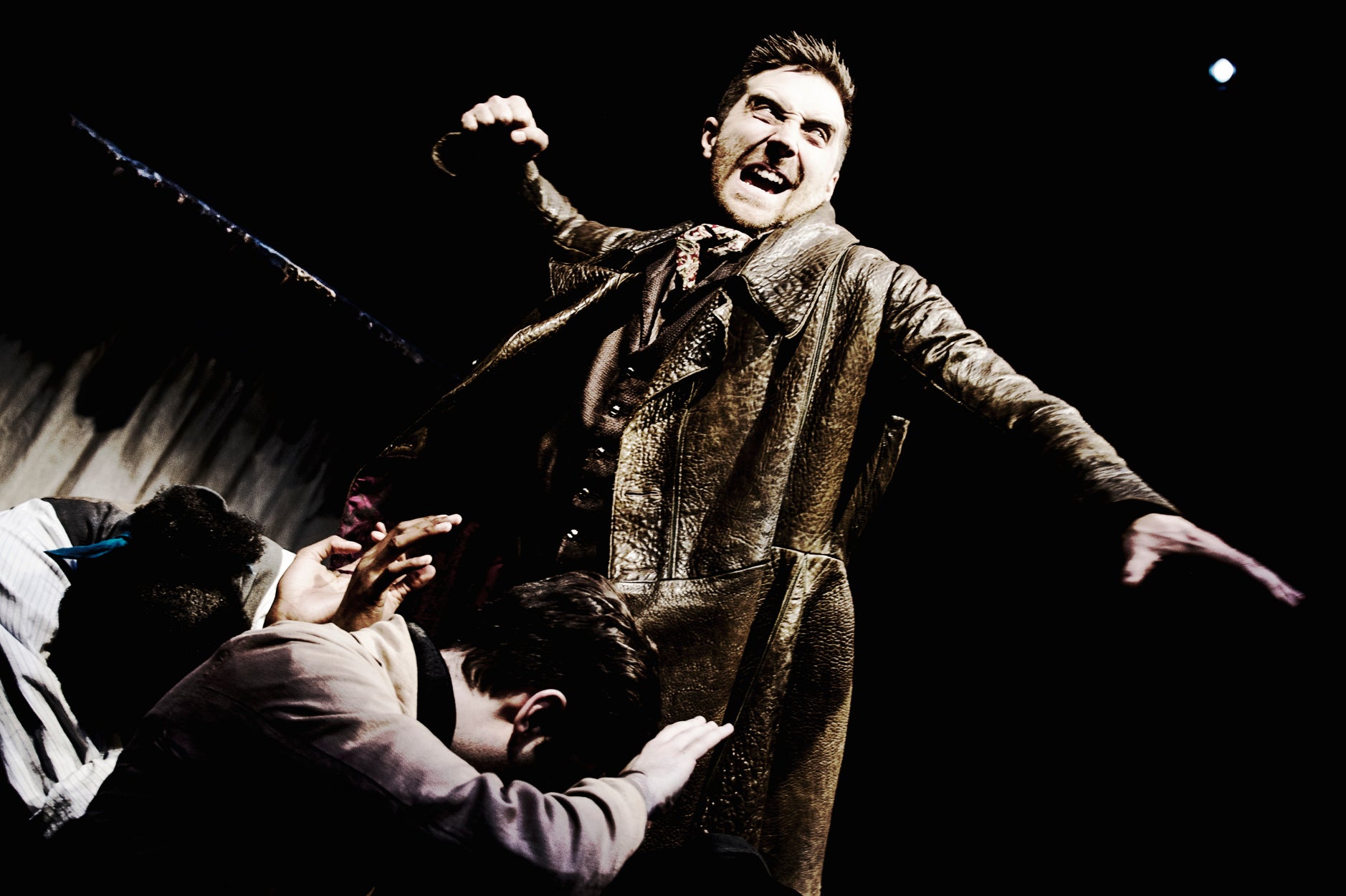
Your support helps us to tell the story
From reproductive rights to climate change to Big Tech, The Independent is on the ground when the story is developing. Whether it's investigating the financials of Elon Musk's pro-Trump PAC or producing our latest documentary, 'The A Word', which shines a light on the American women fighting for reproductive rights, we know how important it is to parse out the facts from the messaging.
At such a critical moment in US history, we need reporters on the ground. Your donation allows us to keep sending journalists to speak to both sides of the story.
The Independent is trusted by Americans across the entire political spectrum. And unlike many other quality news outlets, we choose not to lock Americans out of our reporting and analysis with paywalls. We believe quality journalism should be available to everyone, paid for by those who can afford it.
Your support makes all the difference.Wittgenstein famously remarked that “If a lion could speak, we would not be able to understand him” (because, as a different form of life, he would play wholly distinct language games).
Now compare that insight with this celebrated passage in Melville's novel Moby-Dick about the contest between the eponymous creature and the Captain of the Pequod, who is obsessed to exclusion of all else with avenging himself for the loss of a leg. “He's a fury. He's an angel of hell. Why if the white whale could talk, he'd talk like Ahab”.
It's a terrifying statement because, if it anthropomorphises Moby-Dick, it also, to a degree, zoomorphises Ahab. It also indicates how this great book, on one level a mighty seafaring yarn, keeps going for broke in a metaphysical and metaphorical dimension in its depiction of the central battle of wills and of the collateral damage that causes amongst the rest of the crew.
This splendid new stage version, written and directed by Sebastian Armesto for simple8, finds the simplest and most imaginatively resourceful means to suggest the sheer span of a saga that takes us, at one end, into the innards of a whale's body for “the grail of the spermacetty” (the sac of oil at its purest) and the stars on the horizon at the other.
One hesitates to say, in this context, that Armesto has filleted the book well but that's just what he has done. In DIY poor theatre fashion, the male ensemble build the ship from bits of wood and with pieces of flotsam create the poetically evocative outline of a whale in the extraordinary scene of dissection.
With his manic glare, stiffly swivelling walk and constantly working mouth, Joseph Kloska's riveting Ahab manages to bring out the Captain's cracked charisma and put a touch of the “mental” into the notion of elemental.
Cameron Mackintosh had a notorious flop with a stage musical version, with Melville's story campily presented as a play at a girl's school, and there have reports that he is threatening to revive the piece on Broadway. Armesto's production resounds to beautifully harmonised and ravishing sea shanties that make one shiver at the danger and loneliness of the nautical life: “Only the Eskimo in his skin canoe/Knows the fate of Lord Franklin and his gallant crew”. In more ways than one, this Moby-Dick is a transporting experience.
To 4 May; 020 7503 1646
Join our commenting forum
Join thought-provoking conversations, follow other Independent readers and see their replies
Comments